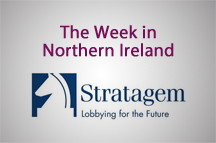 This week sees the beginning of a new era in local government in Northern Ireland. As of 1st April, the 26 local councils are no longer, and the 11 new ‘Super Councils’ - comprised of amalgamations of the old council structures in the main - have assumed power.
This week sees the beginning of a new era in local government in Northern Ireland. As of 1st April, the 26 local councils are no longer, and the 11 new ‘Super Councils’ - comprised of amalgamations of the old council structures in the main - have assumed power.
It’s not just the boundaries that have changed. For the first time in 40 years, Councils will be significant entities in their own right. They have been handed considerable new powers from a range of Stormont Departments, including planning, economic development and local tourism. Many of the old faces have gone too, ushering in a new generation of councillors.
While this has been dubbed the biggest shake up of Local Government in a generation, it remains to be seen if the new structures will actually deliver better services, more efficiently. The theory is that decision making will be more flexible according to local need. This remains to be seen.
 What is certain, is that the new Council model creates a new dynamic in political decision making in Northern Ireland. Since the restoration of devolution, all eyes have been on Stormont. This may no longer be the case. For instance, the Police Service of Northern Ireland has taken cognisance of the new structures, realigning its own district model to match the 11 super-council boundaries. Region- wide bodies with interests in planning, tourism, regeneration or economic development will also have to review how they engage.
What is certain, is that the new Council model creates a new dynamic in political decision making in Northern Ireland. Since the restoration of devolution, all eyes have been on Stormont. This may no longer be the case. For instance, the Police Service of Northern Ireland has taken cognisance of the new structures, realigning its own district model to match the 11 super-council boundaries. Region- wide bodies with interests in planning, tourism, regeneration or economic development will also have to review how they engage.
The interplay between Stormont and Local Government will be one to watch in the context of the realignment of powers. Already on day one, a row has broken out over a shortfall in cash that the Executive is giving to Councils towards economic regeneration.
Structural reform is one thing. But what many in Northern Ireland will want to know, is can they expect local government reform to usher in a golden era of good government? Past experience will show, this depends on how well the politicians from all parties can find common cause to work together effectively. The hope would be that new powers and responsibilities will demand an added maturity in relations to make this so.
 Local government in Northern Ireland has certainly not been without political controversy in the past, including in recent years. The fall out over the decision to fly the Union flag on designated days originated in Belfast City Council, but had profound reverberations across the Country.
Local government in Northern Ireland has certainly not been without political controversy in the past, including in recent years. The fall out over the decision to fly the Union flag on designated days originated in Belfast City Council, but had profound reverberations across the Country.
However, the optimist would point to the fact that being able to return to strong local government is in itself a mark of how much progress we as a society have made. More than ever, Northern Ireland has the structures in place to deliver good government. It is up to the elected representatives to make this a reality.














